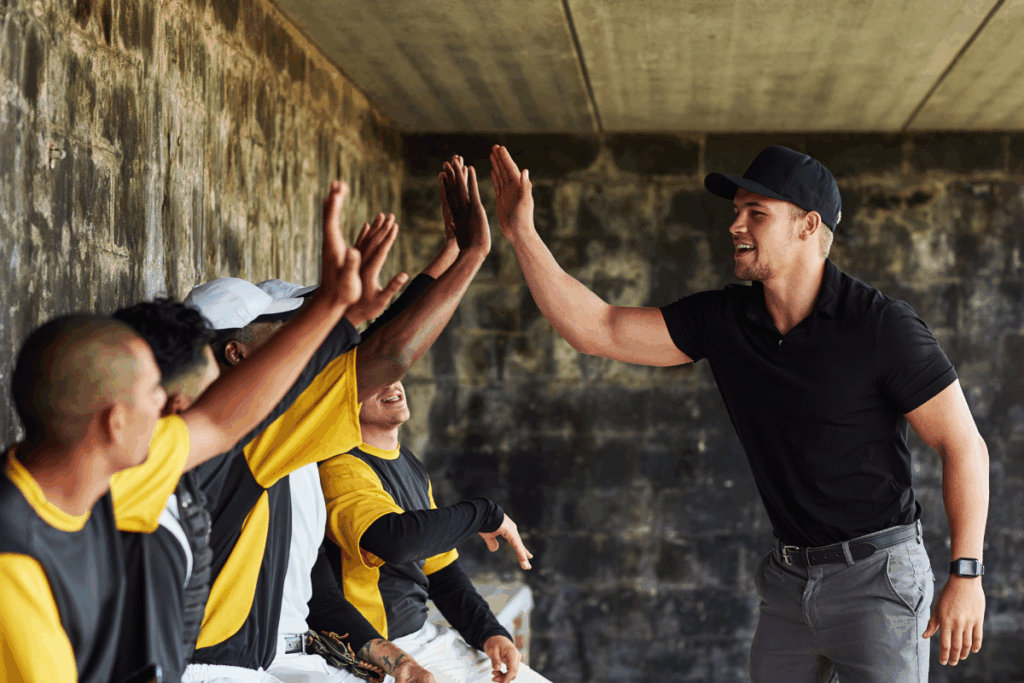It’s no secret that despite living in the twenty-first century, women still experience an unprecedented amount of misogyny. This can happen in the workplace, in healthcare settings, in public places, and even in university. You may believe that we live in a progressive society where there are many female-dominated spaces, and while this is seemingly true, the latest UN women’s UK study showed that 97% of all young women had been subject to harassment. This shocking figure highlights that even though society is progressing in its acknowledgement of women, we all still have a long way to go – including universities.
What is misogyny?
Misogyny is the dislike, contempt, or ingrained prejudice against women because they are women. It goes beyond individual bias and can shape attitudes, behaviours, and systems that devalue or marginalise women. Misogyny often upholds the belief that women are inferior to men or should be controlled, and it can influence how power and opportunity are distributed in society.
At its core, misogyny is about reinforcing gender inequality by treating women with hostility, suspicion, or disregard. Understanding this helps explain why sexist attitudes and behaviours persist and why challenging them is essential for creating safer, fairer spaces.
Is misogyny still prevalent in the UK and in unis today?

The house of commons reported that recently there has been an increase of harassment and sexual violence against women in educational settings. It was also reported that sexual assault is higher among full-time students than in any other occupation. In preparation for this article, I contacted fellow female students at my university asking them if they believed that misogyny was still prevalent in university. Each woman responded “yes.” There were a variety of anecdotes, some of which I will divulge here, but despite the differing circumstances, it was clear that each woman had been faced with misogyny at some point in their educational journey. A few examples of this include:
- Being in class and struggling to get your point across beside the men in the class. This particular student studies a humanities subject, a course which engages students in group projects and class discussions. She expressed to me the difficulty of contributing to class discussions, not for lack of trying, but rather in the attempt of actually getting a chance to speak. Oftentimes, in large discussions, male voices crowd the room with their thoughts and opinions and completely take over the conversations. This is not to say that these men who are talking don’t have good points to make, but that would completely miss the point that everyone deserves to have the opportunity to share their side of the conversation if they desire.
- Following on from this point, some classmates of mine have experienced that men sometimes have more to say on issues that they have never experienced themselves. This could be the gender wage gap, catcalling, female rights, or even femicide in some countries. It is very important that a multitude of voices, male and female, speak out against these issues, but when male voices dominate conversations in an attempt to defend their own gender or explain “their side” of it, then an even bigger issue arises. It can be easy to watch male classmates “mansplain” the root cause of these issues whilst they assume you have not had direct experience with at least one of them.
- Moving away from classes, nightlife at university can also prove to be a highly misogynistic experience. Many of the women I asked expressed their experience with men not understanding that no, means no. One man, for example, said “most girls say no when they don’t actually mean it.” And when this woman withdrew from the conversation he grew agitated and called her “cold.” Further, on the flip side of this, many women experience being labelled as “sluts” or “whores” when they go home with a man. Most women agree that despite what they choose to do, they will be looked down on by men.
Most universities pride themselves on their inclusivity and their care for students, with most offering welfare meetings and advice for a multitude of different issues. Ulster university has many different options for students depending on which route they want to take. Whether a student would like advice on a situation, to chat to a sympathetic person, or to report an incident, Ulster University will handle it swiftly with grace. At Ulster University, the wellbeing team take misogyny very seriously, including sexual misconduct.
There are multiple different ways to access support for you or a friend, and these can be found on the UUSU website. If you choose to report you can do so anonymously or leave your contact details with the form. If you choose to remain anonymous, you may not receive direct help but you can still access support services. The support services available are the student wellbeing team which can be reached through an email or through a contact number which you will find here. This wellbeing team is here to offer advice, as well as a listening ear. The university also offers student counselling as well as a sexual health clinic. If you choose to visit the sexual health clinic you can get confidential advice on how to handle whatever situation you find yourself in. It is also important for students to know that Ulster University have campus security which can be called at the click of a button using the safezone app. This app allows students to call for help by activating your location to security staff around the campus. It also enables students to hit an SOS button if they are faced with an emergency.
The very fact we have access to these services should reassure students, but also is saddening to know we have a need for them. These anecdotes as well as the statistics provided are a sure sign that misogyny is very much still prevalent in universities today. Students should be reassured, however, that universities are actively fighting against misogyny, and that we as a society are taking steps towards a world that women can excel just as much as men can.
Mansplaining and male-domination
Ulster is only one example. Unfortunately, the issues that women face are evident everywhere on campuses across the country, including Sheffield Hallam. Speaking from my own experience, as well as the experiences of a few other women I have spoken to, misogyny is still very much present, even if it appears in ways that might be overlooked, or seen as more subtle.
I am a journalism student, and whilst the class numbers are female-dominated, it’s noticeable that the few men in the group try to overpower the conversations. There have been multiple instances in which they conduct discussions in seminars and do not give women a chance to speak. It’s painfully frustrating when I know there are a lot of intelligent women in my class who have a lot of amazing things to say, but are given less of a chance. This often makes us feel overlooked, and, in some cases, discourages us from speaking altogether – especially with that thought in mind that what we say might not be valued as much as if it were a man saying it. Journalism is supposed to boost different perspectives, but within the classrooms, male voices still take precedence. It reflects a wider issue across higher education, where misogyny in subtle forms can restrict women’s opportunities to contribute and be heard, even in spaces where they are knowledgeable, capable, and the majority.
An obvious example of this in action is what’s often referred to as mansplaining. A word that’s been used everywhere on social media, and is, a lot of the time, not taken as seriously as it is. Mansplaining is “the act of explaining something to someone in a way that suggests that they are stupid; used especially when a man explains something to a woman that she already understands.” (Cambridge Dictionary).
There’s nothing more frustrating than putting in the effort, research, work, and hours, only for someone to then talk to you like they know so much better. It’s even worse when you are on the same course, at the exact same level as them. There have been many occassions in my life in which things have been mansplained to me- sometimes it’s not so serious. I remember a male coworker once explained the entire lore of a video game to me, making sure to ‘use smaller words’ so I ‘wouldn’t get confused’, despite the fact that when he first started the conversation, I told him I’m very familiar with the game and play it often. This is a small instance, still demeaning, still frustrating, but one I can somewhat laugh at. What isn’t funny is coming up to university because I worked hard to be here, on a course I chose because it’s a career I want to pursue, only to be spoken to by a man like I’m dumb, despite learning the exact same things!
An example that sticks with me and a friend in my course is when we were assigned a video project in a group of three – me, her, and another guy. We watched the lecturer demonstrate how to use the camera, all the settings, how to fit it together, etc. But when it came to actually filming, the man we were working with decided to take it upon himself to take charge of working the camera. He refused to let us film or set it up, claiming ‘it’s actually quite confusing’. This was frustrating within itself because we’d all watched the same demonstration, and I knew I was fully capable of assembling this camera and filming, but he was so convinced I wasn’t. When he decided he wanted to sit for half an hour of our time to eat a sandwich, my friend and I took it upon ourselves to carry on filming. This is when he then proceeded to mansplain the assembling of the camera that was so difficult, explaining details as though we were stupid. After looking at him with blank expressions, my friend and I went on to set up the camera and film footage quicker than he had, with no hassle at all. The following week, he wasn’t in the workshop, so we had to go and film without him – during those three hours, we got more footage than we had in the last two weeks.
I am in no way suggesting that men are less capable, I’m sharing this example to show how certain behaviours, such as mansplaining or assuming women need extra help, can undermine confidence and create unnecessary barriers. This isn’t a men versus women issue; it’s just about recognising how assumptions about gender can creep into group work, even when everyone has the exact same training and skills.
Misogyny, lad culture and university lifestyles

It isn’t just in the classrooms that misogyny displays itself at university. It’s also out in the streets, on club nights, and in social spaces that are a big part of university culture. A huge part of this is ‘lad culture’. The NUS defines lad culture as a group or ‘pack’ mentality residing in activities such as sport, heavy alcohol consumption, and ‘banter’ which is often sexist, misogynistic, racist, or homophobic. It is also thought to be a sexualised culture which involves the objectification of women and rape-supportive attitudes, and occasionally spilling over into sexual harassment and violence.
At university, this culture is often normalised as it’s ‘just what lads do’, or the common favourite ‘boys will be boys’. Nights out are dominated by moments where women are catcalled, groped, or on the receiving end of sexist jokes, all behaviours which are dismissed under the umbrella of ‘banter’. Speaking to other women, and from my own experiences, it’s clear how common these experiences are: being touched without consent in the club, walking home with keys between our fingers, laughing off crude comments to avoid conflict. While it’s important to note that not every man engages in this behaviour, lad culture creates an environment in which misogyny becomes excused, and where women are expected to put up with it as a part of student life.
So yes, misogyny is still prevalent at universities, and not just on campus or in classrooms. It’s deep-rooted and sometimes subtle. It’s something people laugh off to avoid conflict because it’s ‘not that deep’. But it is that deep, and while Sheffield Hallam, like many universities, has support services in place for students who experience sexism or harassment, the fact that these services are necessary shows how urgent the issue still is. We need to challenge these issues head-on, or we will not have real change – we need to speak about it more so that it becomes harder for misogyny to remain ignored. Universities need to become a place where every student feels safe, heard, and respected.
Campus culture represents society
As well as Ulster and Sheffield Hallam, the University of Nottingham isn’t alone when it comes to misogyny on its campus. From personal experiences, misogyny is not as prevalent as it could be, but that’s speaking as a media student in a female-heavy course.
To clarify, Nottingham University’s Student Union has a policy under ethical issues (7.8) which defines public sexual harassment (PSH) and a call to end it on campus. The policy, proposed in June 2021, resolved to tackle PSH through numerous solutions, including but not limited to: a new campaign against sexual harassment; the introduction of mandatory consent and sexual harassment workshops for all sports teams; the introduction of active bystander training for staff both student and student-facing and working with relevant student led groups to raise awareness for PSH. In the notion, the council detailed their stance, saying: “We believe Higher Education should be a place of safety, never fear [but] every aspect of women and non-binary students’ lives are planned around their fear of harassment.”
The policy in place seems to be effective, but only to some extent. In the university’s official student magazine, Impact Magazine, Ife Oyedeji was interviewed about her time as the SU Liberation Officer including her work on tackling discrimination against women. Despite her wins through the distribution of menstruating products and the Liberation Hub–a safe space for marginalised groups at the university–Oyedeji recognised the challenges of PSH through the university’s ‘Report and Support’ services: “[it is] feeding back that a big problem for students is public sexual harassment and sexual violence […] It’s not a good thing that we’re receiving tons and tons of reports.”
The issue with misogyny isn’t that it comes from campus communities, it festers in them through external sources. Society is inherently patriarchal, even throughout its history in which women were seen as lesser than men. Of course, this has changed with women achieving in areas that were once dominated by men. But we think of the rise of right-wing politics and traditionalism, for example, in social media forums. The discussion of ‘incel culture’ only reached mainstream audiences through media examples such as the Emmy-winning Netflix series Adolescence, which depicts the fallout of a crime in which a teenage male murders a female peer. Although there are many ways that a misogynistic mindset can be developed, the TV series shows us how easily influenced young men can be from role models they passively watch online.
This one side of the misogyny spectrum. The other side of it is the performative male: one that is built upon acting as a saviour or supportive of women’s rights on a surface level in hopes of being perceived as attractive by, typically progressive, women. The archetype is an internet meme that went viral over the last year on social media platforms such as TikTok. The archetype is harmful, stereotyping men who actually do have an interest in hobbies that are usually associated with progressive women. That being said, it’s more common than you think. In my course, this tends to be the case. On multiple occasions, women I know experienced situationships where they’re pressured to reward men because they did the bare minimum. Women are manipulated into thinking that the man they’re with really does enjoy their interests, only to find themselves ghosted. Some find themselves idealised by them. On rare occasions, it escalates to reports to the university and police. Women still fear for their safety.
Unis still have a lot to do to tackle misogyny
We have to admit that there’s still so much more that needs to be done to tackle misogyny at university, but there’s unfortunately so much that a community can do against misogyny. Female-identifying groups should feel safe on streets and online platforms, let alone campus. The support I’ve seen between women is admirable, especially considering how prevalent that misogyny is in both casual and extreme cases. The University of Nottingham provides support to those who’ve experienced or at risk of sexual harassment as well as promotes student-led communities such as SASS (Students Against Sexual violence and Sexism), which fought for mandatory consent workshops–”Consent is not something you can opt in and out of.” Even if a woman finds herself in a disheartening misogynistic situation, support is always available.

Topic expertise: Student Cities, Cost of Living, Nightlife, Wellbeing, Accommodation
FAQs on Misogyny and Gender Equality at Universities Today
Unfortunately, yes. While awareness and policies have improved, many students still report experiences of sexism, harassment, or exclusion. Misogyny can appear in social groups, online spaces, and even within certain academic or sports environments.
It can range from sexist jokes and exclusionary behaviour to harassment, unequal treatment in group projects, or stereotypes in teaching. Online abuse and unsafe nightlife settings are also areas where female and non-binary students report negative experiences.
Many universities now run consent workshops, have anonymous reporting systems, and promote campaigns around gender equality and respect. Student unions often lead initiatives and collaborate with local organisations to improve safety and inclusion.
Call out harmful comments calmly when it’s safe to do so, support friends who experience sexism, and use reporting systems when necessary. Joining equality societies or awareness campaigns can also help drive positive cultural change on campus.
Yes. Many campuses have feminist societies, gender equality collectives, and student-led campaigns addressing harassment and representation. They host events, workshops, and talks to make university life safer and more inclusive for everyone.
Authors
-
I am a student at Ulster University who is studying English. I am passionate about poetry and encouraging students' faith whilst in university!
View all posts -
Hi, I'm Emily! I'm a Journalism student at Sheffield Hallam University. I particularly enjoy writing about university life, sharing perspectives that might help others. Outside of writing, you'll find me at a concert, on a walk, or at the cinema.View all posts
-
Aminah is a dedicated content expert and writer at Unifresher, bringing a unique blend of creativity and precision to her work. Her passion for crafting engaging content is complemented by a love for travelling, cooking, and exploring languages. With years spent living in cultural hubs like Barcelona, Sicily, and Rome, Aminah has gained a wealth of experiences that enrich her perspective. Now based back in her hometown of Manchester, she continues to immerse herself in the city's vibrant atmosphere. An enthusiastic Manchester United supporter, Aminah also enjoys delving into psychology and true crime in her spare time.
View all posts

